The Rise of BRICS: Cold War Redux or End of Empires?
There is a vague nostalgia for the Cold War era, which spanned from almost immediately after World War II in 1945 to the collapse of the Soviet Union in December 1991. It was arguably a period of history marked, if not by peace and stability, at least by a sense of predictability emanating from a balancing act between the two superpowers. For 46 years, world geopolitics were rather simple as countries aligned themselves with one block or the other. During nearly half a century, the conflicts between the two empires were mostly limited to proxy wars. A weak attempt to challenge the bipolar world order of the Cold War was a timid creation by six countries of the European Economic Community (EEC) in 1958. It took another 35 years for the European Union (EU) to be formally established by the Maastricht Treaty in 1993. With most of its big members belonging to NATO, the EU always lacked the political will to break away from the United States. Twenty years after Maastricht, the 28 members, even the biggest ones, are more than ever the vassals of Uncle Sam.
BRICS: Bric-a-brac or super-power in the making?
BRICS is the acronym for the association of Brazil, Russia, India, China and South Africa. It was originally formed in 2008 as BRIC, with South Africa joining in 2010. This formidable association of so-called emerging economies represents, without spelling it out, the first challenge to the unipolar world that had been under the de-facto imperial rule — politically, economically and especially militarily — of the United States since 1991. Originally, BRICS seemed concerned only about economic issues, but there are signs, since late 2013, that the group wants to handle global affairs. On foreign-policy issues, BRICS countries support a central role for the United Nations and are, in principle, against foreign interventions in the affairs of other states.
An official declaration issued by BRICS at the April 2011 Chinese summit stated that “BRICS members are deeply concerned with the turbulence in the Middle-East, the North African and West African regions and the self determination of its people. Further, members also share the principle that the use of force should be avoided.” On critical international issues, however, splits between BRICS members have emerged a few times. BRICS is so eclectic, vast and diverse that its members’ political interests can and have clashed. For example, Russia and China abstained from voting on UN Security Council resolution 1970 on armed intervention in Libya, whereas Brazil supported it. South Africa supported UN resolution 1973, opening the way for a North Atlantic Treaty Organization (NATO) attack on Libya, while Brazil, India, China and Russia abstained.
Considering how new the grouping of countries is, BRICS’ creation has already been unquestionably a geopolitical game changer, and its repercussions are already significant. Gone are the days of the mid 1990s, when a weak and crumbling Russia could let NATO bomb its long-term historical ally Serbia and let the West impose its will in the dismantlement of Yugoslavia. The coming of age, as a major international player, for BRICS was to win the showdown with the West over the Syrian crisis at the end of 2013, and by doing so perhaps to have defused World War III.
Syria crisis: A turning point in world geopolitics
Forcefully dissuading the United States and its eager European vassals from attacking Syria in 2013 is BRICS’ biggest foreign policy accomplishment so far. At the peak of the crisis, BRICS became more coherent, and the four other partners fully backed Russian President Vladimir Putin’s uncompromising stance. The turning point was during the G20 summit in early September 2013 in St Petersburg. In late 2013, BRICS drew a line in the sand. The US imperialist follies in Afghanistan, Iraq, and Libya would not be allowed a repeat in Syria or Iran. It had to be done. The days of American exceptionalism had come to an end. Under the impulse and leadership of Putin, BRICS came down resolutely and unanimously against a US-NATO military intervention in Syria.
The members stressed, in common, the cornerstone of their foreign-policy principle: force against a sovereign state may be used only in self defense, and such a decision can only take place with the approval of the UN Security Council. Syria did not attack the US, therefore a NATO attack was illegal and would provoke BRICS’ retaliation. If the outcome of Syria’s tragedy is uncertain, what is clear is that BRICS’ member Russia forced a diplomatic solution.
Bipolar or multipolar world and the case of the Ukraine?
The Cold War was a bipolar period of history defined by a stalemate between two empires. According to Mr. Putin, BRICS brings the hope of a truly multipolar world without empires. President Putin, in principle, doesn’t view BRICS as an opposing force to the West. For Putin, “BRICS is a key element of an emerging multipolar world.” In an interview with Itar-Tass agency in late March 2013, before the BRICS summit in Durban, South Africa, Putin said that “The group of five has repeatedly affirmed its commitment to the fundamental principles of international law and contributed to strengthen the UN central role. Our countries do not accept power politics or violation of other countries sovereignty. We share approaches to the pressing international issues, including the Syria crisis, the situation around Iran and the Middle-East settlements.”
There are, however, quite a few contradictions in this overall agenda. For example, how can you advocate respect for national sovereignty on one hand, and a greater role for the UN, especially its Security Council, on the other hand? One can wonder how India and Brazil regard not having a seat on the Security Council while Russia and China do. As it is presently, the UN is a tool for imperialism — certainly not a vector for a multipolar world. Another factor that greatly differentiates the five BRICS members is history. If Brazil, India and South Africa have been, in their own rights, victims of colonialism and imperialism, this was never the case for Russia and China. As matter of fact, it was the opposite for the two heavyweights of BRICS. Both China and Russia have had empires, and the nostalgia of imperialism occasionally still shows its ugly mug. China’s imperialism brought it to Tibet, and the logic of empire keeps Tibetans under Chinese boots. Along the same lines, some of the events currently taking place in the former Soviet satellites are troubling, to say the least. In the case of the Ukraine, it does not seem that either the West or Russia has Ukraine’s best interest or national sovereignty in mind by interfering in its affairs. The Ukraine and Syria are pawns in this massive new geopolitical game that opposes the US/EU against the mighty BRICS and its Russian chess Grandmaster.
Editor’s Note: Photographs one and four from James Vaughan‘s archive. Photograph two from Blog do Planalto. Photograph three by Patrick Quinn-Graham. Photographs five and six by Freedom House. Photographs seven and eight by Tandalov.
Related Articles


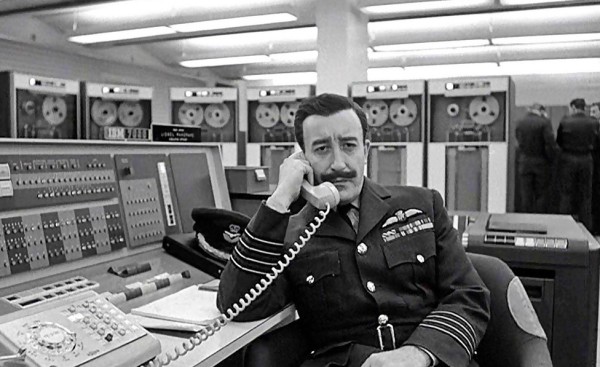
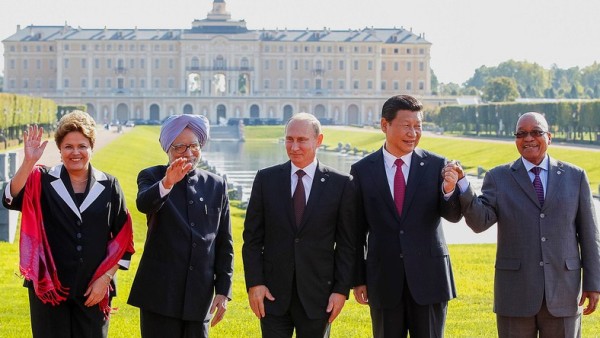
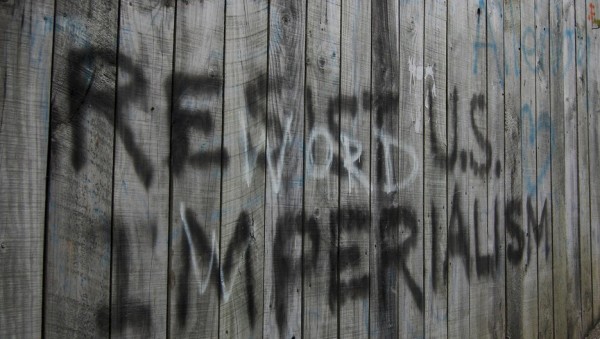

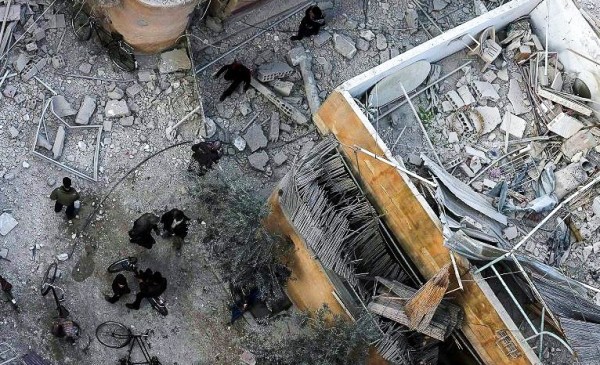
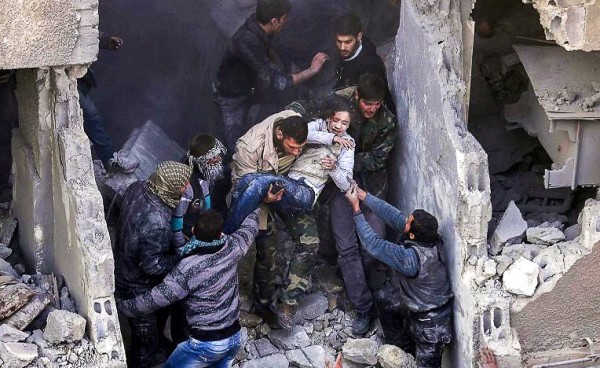
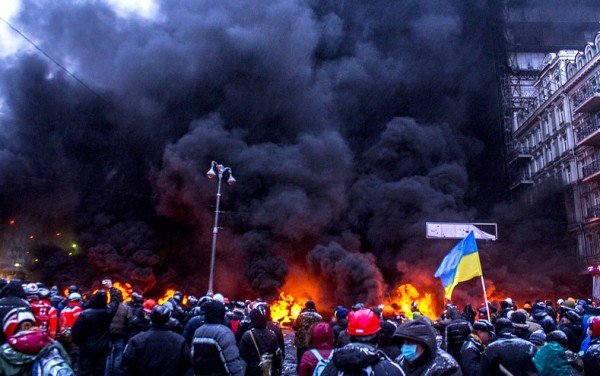
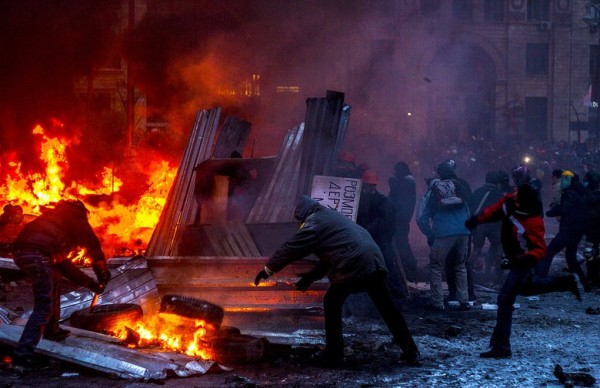












One Response to The Rise of BRICS: Cold War Redux or End of Empires?
You must be logged in to post a comment Login